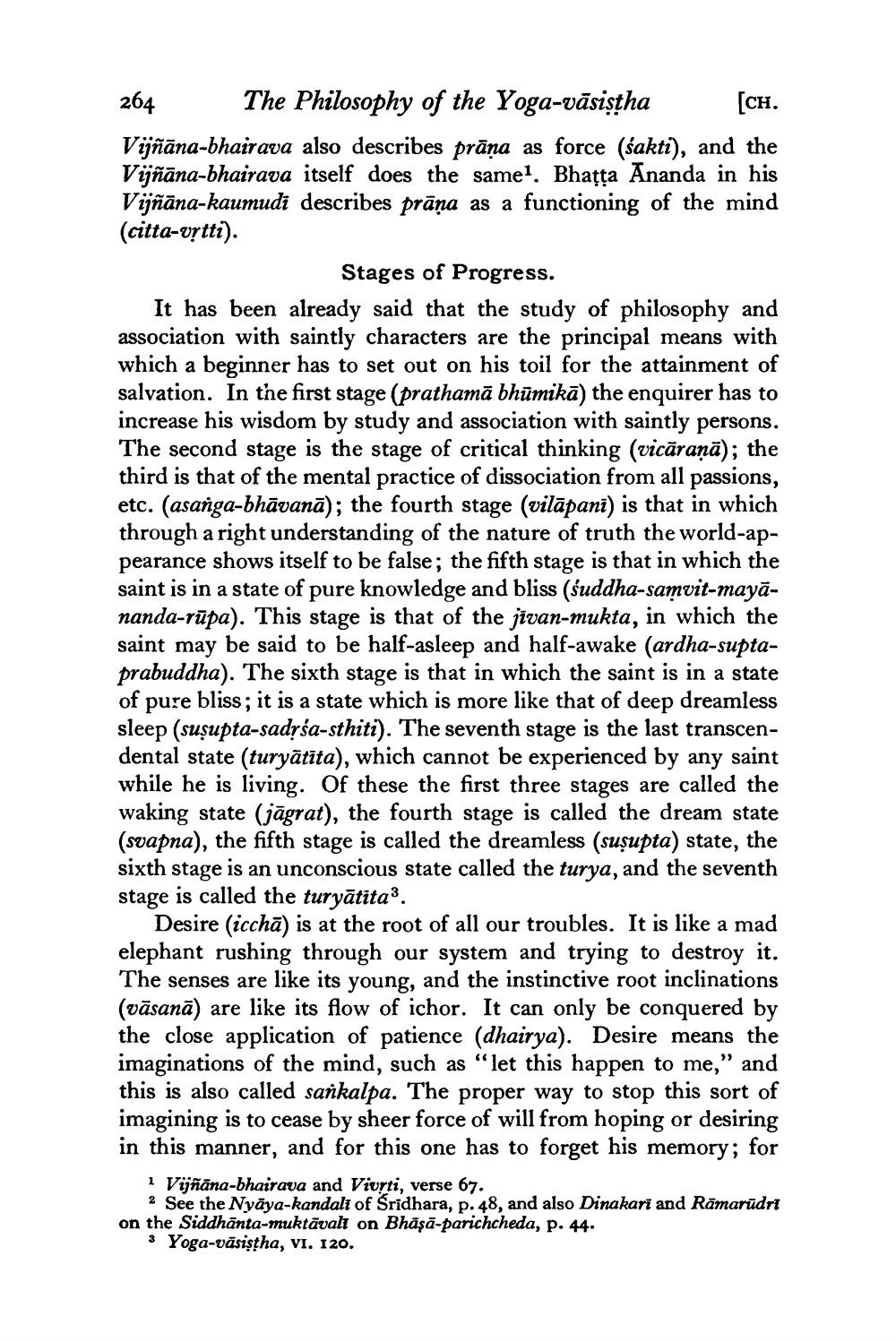________________
The Philosophy of the Yoga-vasistha
[CH.
Vijñāna-bhairava also describes prāna as force (śakti), and the Vijñāna-bhairava itself does the same1. Bhatta Ananda in his Vijñāna-kaumudi describes prāṇa as a functioning of the mind (citta-vṛtti).
264
Stages of Progress.
It has been already said that the study of philosophy and association with saintly characters are the principal means with which a beginner has to set out on his toil for the attainment of salvation. In the first stage (prathamā bhūmikā) the enquirer has to increase his wisdom by study and association with saintly persons. The second stage is the stage of critical thinking (vicāraṇā); the third is that of the mental practice of dissociation from all passions, etc. (asanga-bhāvanā); the fourth stage (vilapani) is that in which through a right understanding of the nature of truth the world-appearance shows itself to be false; the fifth stage is that in which the saint is in a state of pure knowledge and bliss (suddha-samvit-mayananda-rupa). This stage is that of the jivan-mukta, in which the saint may be said to be half-asleep and half-awake (ardha-suptaprabuddha). The sixth stage is that in which the saint is in a state of pure bliss; it is a state which is more like that of deep dreamless sleep (suşupta-sadṛśa-sthiti). The seventh stage is the last transcendental state (turyātīta), which cannot be experienced by any saint while he is living. Of these the first three stages are called the waking state (jāgrat), the fourth stage is called the dream state (svapna), the fifth stage is called the dreamless (sușupta) state, the sixth stage is an unconscious state called the turya, and the seventh stage is called the turyātita3.
Desire (iccha) is at the root of all our troubles. It is like a mad elephant rushing through our system and trying to destroy it. The senses are like its young, and the instinctive root inclinations (vāsanā) are like its flow of ichor. It can only be conquered by the close application of patience (dhairya). Desire means the imaginations of the mind, such as "let this happen to me," and this is also called sankalpa. The proper way to stop this sort of imagining is to cease by sheer force of will from hoping or desiring in this manner, and for this one has to forget his memory; for
1 Vijñāna-bhairava and Vivṛti, verse 67.
2 See the Nyāya-kandali of Sridhara, p. 48, and also Dinakari and Rāmarūdrī on the Siddhanta-muktavalt on Bhaşa-parichcheda, p. 44.
3 Yoga-väsiṣṭha, VI. 120.




